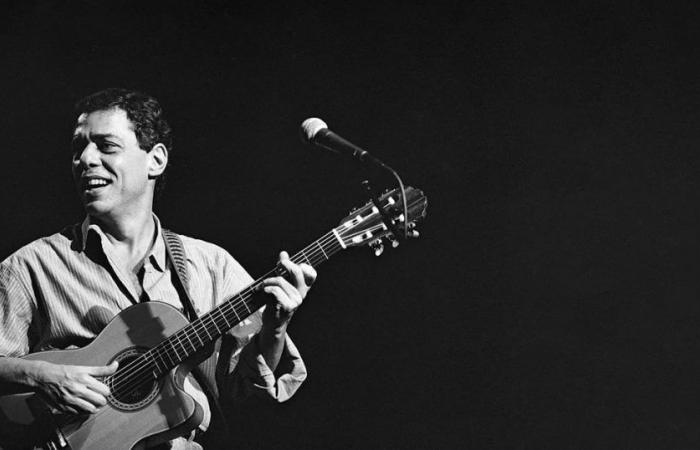Francisco Buarque of HollandOr simply Boyturns 80, more devoted to literature than to music and faithful to the political activism that has guided his work over the last six decades.
The intellectual streak came from the cradle. Son of Sérgio Buarque from Hollandhistorian, sociologist, writer and already at the time one of the greatest cultural references of Brazil, and of Maria Amelia Alvim, pianist and plastic artist, both socialists. Even so, in his youth he studied architecture for two years, dazzled by the figure of Oscar Niemeyergreat friend of his father.
However, at the beginning of the 60s, he was captivated by bossa nova, created by other regular visitors to the family home: Vinícius de Moraes and Tom Jobim. “I left architecture and became Jobim’s apprentice. When my music comes out well, I imagine it is by Jobim, but Tom’s music, for me, is like Oscar’s houses,” he declared a few years ago.
It’s considered one of the great poets of Brazilian music and began to be known at the beginning of the 60s. It had as a platform festivals that promoted new talents and discovered other emblematic figures, such as Gilberto Gil, Cateano Veloso, Milton Nascimento either Elis Regina. What was later known as Brazilian Popular Music (MPB), which began to have political overtones from 1964, when a military coup established a dictatorship that lasted until 1985.
The resistance to authoritarianism had him as one of its most active voices and he paid for it with exile. Persecuted and censured, in 1969 he left for Rome, but after 14 months he chose to return to Brazil advised by Vinícius de Moraes: “You must continue making noise,” he told him. With his fame as an antidote to persecution, he composed at that time some anthems of the political struggle against the dictatorship, such as “Vai passar”, sung by the left again from 2019, when the far-right Jair Bolsonaro assumed the Presidency of Brazil.
In 2022, just as he had done since the 90s, he joined the campaign that brought the current president to power, Luiz Inácio Lula da Silvawhom his father accompanied in 1980 in the founding of the Workers’ Party (PT).
Her work after the fall of the dictatorship in 1985 acquired a more intimate tone and explored the female universe, but always with the mark of social criticism and her particular vision as a chronicler. She also took up literature. She had already written some stories, but since 1991, with the publication of I encumberhis first novel, he threw himself fully into literary creation.
Since then he has published a novel every about five years and has added awards as a writer to his music awards. The most important, the Camões Award of 2019, granted by Brazil and Portugal in recognition of his work, but which was denied by Jair Bolsonaroso he ended up receiving it in 2023, already with Lula in the Presidency.
The fame of Buarque Boy It didn’t start as I would have liked. He appeared for the first time in the press on December 30, 1961, at the age of 17, arrested for stealing a car with a friend to “take a ride.” Embarrassed, he explained it as “entertainment” for the youth of the upper middle class of San Pablo, where he lived at the time. He spent a night in a police station and was released, but under partial house arrest, which prevented him from going out at night for 172 days.
In those nights he perfected the guitar with his sister Miúcha and composed his first poems, which a little later would be in the mouths of millions of Brazilians. With his police file (RI5950) he printed the album cover in 1993 For all and he alluded to the fact in the song “A foto da capa”, which says that “the portrait of the artist as a young man is neither promising nor candid painting. “He is the figure of the ostentatious thief.”
His last photo on the eve of his 80th birthday was very different. It was published last weekend and appears with the former soccer player Rai (PSG star in the 90s, brother of Socrates, another famous Brazilian footballer) in protests against the advance of the extreme right in Europe in the streets of Paris, where he spends about six months each year. A portrait much more in line with what his thoughts have been since he turned to the arts of music and literature.
Source: EFE






